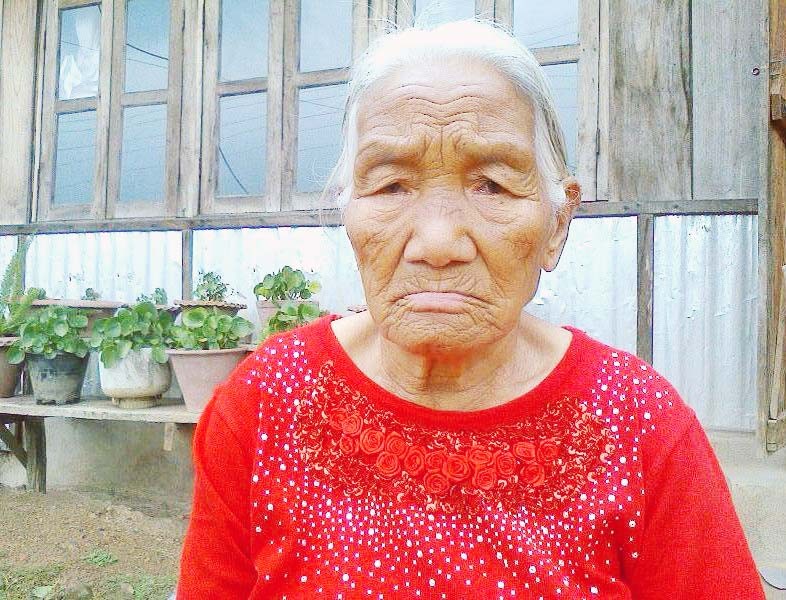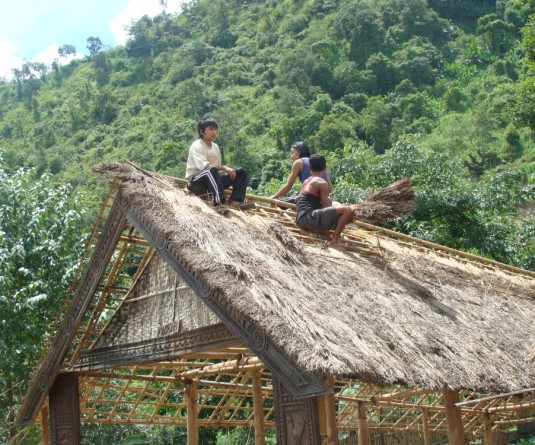Tekatemla

A 90-year old mother recounts the agonizing burden of pain and loss she endured during the 1957 grouping period of Naga villages by the Indian Army
Imti Longchar
Dimapur | May 10
Twelve days after her three-year-old daughter, Moamongla died in her arms, Tekatemla, a 33 year old mother of three, felt herself sinking into abject despair the morning she woke up to the cold hands of her five-year-old son Ridongyimba.
Just like her sister, Ridongyimba had succumbed to malnutrition and a viral disease after days of fighting it.
“My grief and pain of loss was indescribable,” she says trying to sound detached. But even after 57 years since, the stirring of emotions in her voice is unmistakable.
The year was 1957. During the time, the army adopted a military tactic of grouping of villages in an attempt to break the supply and intelligence network of the volunteers and also smother the spirit of freedom and defiance of the Nagas.
This involved moving an entire population of neighboring villages to one village. In February, the whole population of Mangmetong was taken to Longkhum village where they were herded inside bamboo barricaded fences.
Imprisoned and isolated inside a cell like house which was barricaded by bamboo fences and spikes, Tekatemla had nowhere to turn for help. She and her three children were segregated from her relatives and other villagers because her husband was a volunteer, an ‘underground’ fighting for freedom.
Her grief over the death of her two children was more excruciating because she was powerless to change the outcome. “I am a mother and would readily give up my life for my children, but there I was, powerless to change the outcome,” she narrates of her utter vulnerability at that point of time.
“I staved off despair and gathered what was left of my strength and courage. I soldiered on because I had to mother my youngest, an infant daughter to see that she, we both survive.”
Their confinement at Longkhum village lasted a year.
Tekatemla is one of the oldest survivors still alive to tell of the atrocities and suffering inflicted by the army during the period of grouping. Her’s is not only a story of sadness and suffering, but also a testimony of love, courage and endurance faced by a mother.
She says what happened is in the past. But she still struggles to come to terms with the gripping memory of the devastating loss of her two children - or the night her son died.
“I still feel great pain and regret that my son could not taste the venison meat his father had cooked and smuggled in for us through a villager.”
She recalls how on that fateful night, her son insisted they eat the meat portion together the next morning and ate only the dry yam leaves on which the venison was cooked. He did not live to see the next dawn.
Chosen to be the volunteer vice president from Mangmetong village, her husband Imtichujang, was in hiding from the Indian Army. It was four days after Ridongyimba’s death that his father, taking the risk of capture by the Indian Army, dug up the coffin from the Longkhum village grave and carried it all the way down to Mangmetong to bury it there.
“I wouldn’t ever wish the burden I have carried on any mother. I believe not many mothers have experienced a tragedy of such magnitude. I am grateful to God for giving me the strength to survive and arrive at where I am now,” expresses Tekatemla who turns 90 this year.
Tekatemla is now a mother to eight children. Her husband passed away in 1974.
Like her, during the grouping of Naga villages which lasted from 1957-59, countless of mothers and daughters along with their men-folk were forced to endure untold suffering, loss of property, trauma and humiliation in the hands of the army. Their stories of suffering remain untold and their memories scarred.






